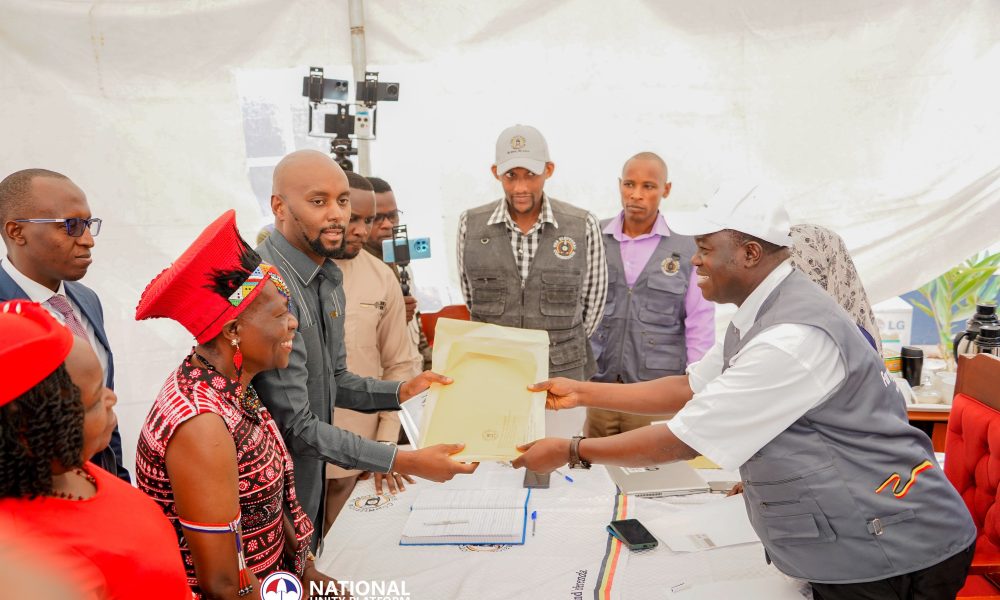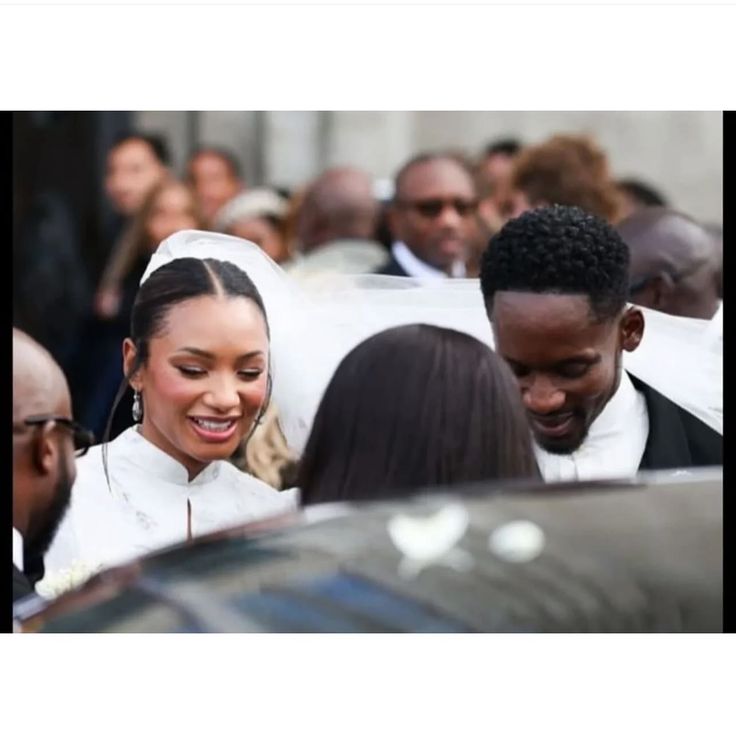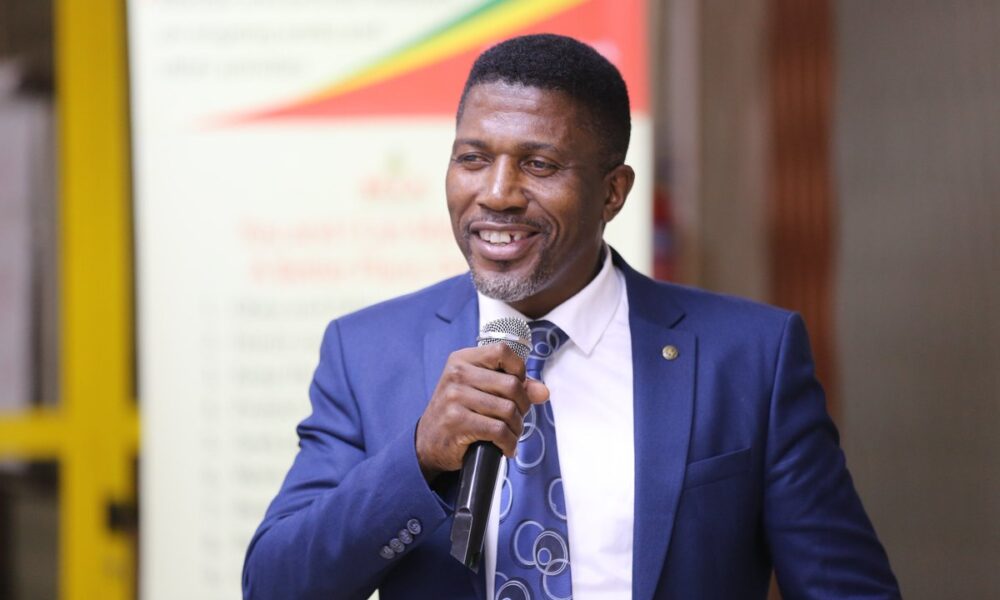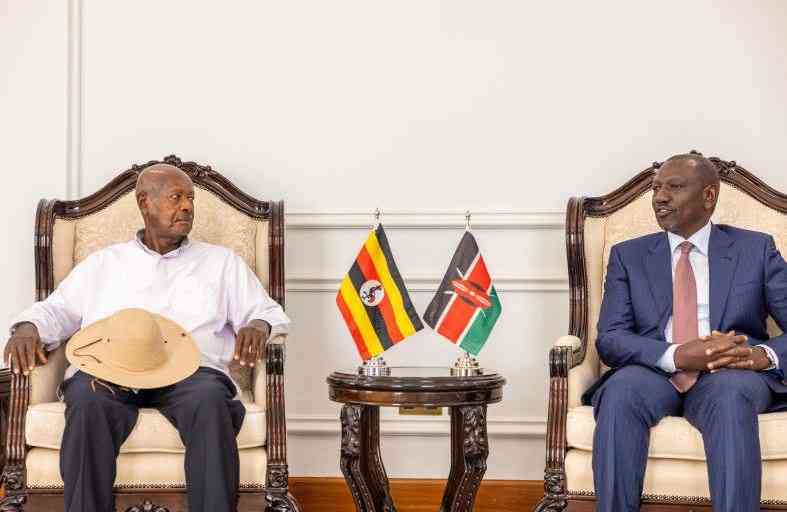Uganda's Presidential Race Ignites: Challengers Vie for 2026 Election

Uganda's political landscape is rapidly evolving as the nation gears up for the 2026 general elections, with a remarkable 175 aspirants having already picked presidential nomination forms from the Electoral Commission within a week of the window opening. This unprecedented surge in interest highlights a vibrant yet complex electoral season ahead. Among these hopefuls, eight have officially collected forms on behalf of various political parties, signaling the early mobilization of established political entities.
The ruling National Resistance Movement (NRM) was quick to act, with Secretary General Richard Todwong securing forms for President Yoweri Museveni, who seeks to extend his nearly four-decade rule. Opposition parties are also making their presence felt early, with the National Unity Platform (NUP) and the Democratic Party (DP) formally collecting forms. The NUP's delegation, including Secretary General David Lewis Rubongoya and Opposition Leader Joel Ssenyonyi, picked forms for their party leader, Robert Kyagulanyi Ssentamu, popularly known as Bobi Wine. This move confirms NUP’s official preparation for the 2026 polls, positioning Bobi Wine for a second term bid as NUP President, building on his significant support among young voters and urban constituencies. The party emphasizes unity and plans to mobilize its structures well in advance of the September nomination dates.
Adding a significant dynamic to the race, Norbert Mao, the President General of the Democratic Party and current Minister for Justice and Constitutional Affairs in President Museveni’s government, has also formally picked nomination forms to contest the presidency. Collected by DP Secretary General Gerald Siranda, Mao's candidacy demonstrates a bold challenge to his current boss. Siranda confirmed that Mao, automatically the party president and flag bearer, will represent DP, despite not yet resigning from his ministerial post. Electoral law requires public servants to resign before joining elective politics, but presidential aspirants have until a day before official nomination. With the Electoral Commission moving nomination dates from October 2-3 to September 23-24, 2025, Mao has until September 22 to step down.
The Electoral Commission, through spokesperson Julius Mucunguzi, noted that while the early activity reflects vibrant multiparty engagement, a striking shift is the considerable increase in independent aspirants. This trend, enabled by Uganda’s 2005 transition from a movement system to a multiparty democracy, allows individuals outside party structures to contest. Political analysts suggest this could fragment votes and test party loyalties, potentially reshaping campaign strategies as parties are pushed to cultivate stronger grassroots networks. The requirement for presidential candidates to submit at least 98,000 signatures from registered voters across a minimum of 98 districts remains a key hurdle. DP Secretary General Siranda has called for amendments to exempt registered political parties from this demanding signature collection process, arguing that their registration and regular returns should suffice as proof of support.
As the official nomination period approaches, observers anticipate a high-stakes election that will rigorously test the durability of Uganda’s multiparty democracy, the appeal of the long-standing ruling government, and the capacity of opposition forces to consolidate their support. With both strong party-backed candidates and a surge of independents, Uganda’s 2026 presidential race is poised to be one of the most competitive and unpredictable contests in recent history, redefining the country’s electoral landscape.
You may also like...
From Otedola to Ajibade: Love, Legacy, and the Politics of a Name

Temi Otedola has changed her surname to Temi Ajibade after marrying Mr Eazi, sparking a nationwide debate on feminism, l...
Boxing World Erupts! Canelo vs. Crawford Super-Fight Set to Define Legacies

Boxing history is set to be made on September 13 as two pound-for-pound greats, Canelo Alvarez and Terence Crawford, col...
Nigeria's Super Falcons Reign Supreme! Historic 10th WAFCON Title Ignites National Pride
)
Nigeria's Super Falcons clinched their record-extending 10th Women's Africa Cup of Nations title with a dramatic 3-2 com...
Conjuring: Last Rites Dominates Box Office, Unleashing Horror Havoc!

The alleged finale of "The Conjuring" franchise, "Last Rites," has shattered box office records, becoming the highest-gr...
Who Will Be the Next 007? James Bond Speculation Heats Up!

Speculation surrounding the next James Bond is intensifying, with British actor Mike Dickman emerging as a surprise fron...
2025 MTV VMAs Electrifies Audiences: Full List of Performers, Winners & Record Viewership Revealed!

The 2025 MTV Video Music Awards, broadcast for the first time on CBS, achieved record viewership and social media engage...
African Music Royalty Reigns: Burna Boy & Davido Dominate AFRIMA 2025 Nominations!

The All Africa Music Awards (AFRIMA) 2025 nominations have been announced, following a record-breaking 10,717 entries an...
Fatherhood Dream: Pete Davidson and Elsie Hewitt Expecting First Child

Comedian Pete Davidson and model Elsie Hewitt are expecting their first child, a joyful announcement Hewitt made on Inst...

